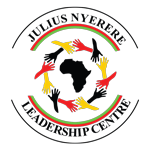The Non-Aligned Movement is a group of states that are not formally aligned with or against any major power bloc. The movement was founded in 1961 during the Cold War as a way for countries to remain independent of the major power alliances. It aimed to promote economic and political cooperation among member countries while maintaining their independence. Tanzania played an particularly active role in the movement on regional and international issues during the Cold War period. At that time country was elected member of the NAM Coordinating Bureau at the United Nations playing important role in movement’s coordinated efforts in that body and was elected as well as the Chair of the Drafting Committee ahead of the 1972 Non-Aligned Foreign Ministers Conference and 5th Summit of the Non-Aligned Movement in 1976.
In early days of the movement President Julius Nyerere was recognized as one of the leading figures in the movement and among Third World leaders in general. His government promoted close adherence to non-alignment principles in which Global North and Global South division was more important than Cold War East–West dichotomy, supported African cooperation, engaged in a strong criticism of superpower intrusion in African affairs and supported the establishment of the New International Economic Order.
We have gathered a selection of quotes from speeches delivered by President Julius Nyerere at significant events within the Non-Aligned Movement.
====================
Speech by Mwalimu Julius K. Nyerere, at the Non Aligned Movement (NAM) Commemorative Conference, 35th Anniversary of the Movement: UNITED NATION BUILDING, NEW YORK. September 24, 1996
====================
” But in today’s world it is impossible for weak nations to stand alone against the pressures of powers from rich countries. Only in unity can they claim their identity. To be ‘me’ they had to be ‘us’. They were united in building solidarity. Only in solidarity could they defend their identity as independent nations and members of the global community.”
“..It is now important for Southern countries to be able to say “We are here” in terms of the economy. It is only through solidarity that any of us can defend our economy as different nations, and our economy as part of the global economy.”
“..What lies ahead for the global community in the near future is another proposal from the North – for a new International Investment Agreement. It could reduce the power of developing countries to determine their own direction of development. The ‘I’ of a poor or weak country can only be represented through ‘us’. Our different identities depend on our solidarity.”
“Indeed, the need for solidarity is greater than ever before. The Cold War between East and West largely concealed the real divisions in the World. The real divisions were always between what they saw – and what they did not see in the world, and between the most developed countries of the North and the developing countries of the South.”
“The end of the Cold War has brought light to the world. It is still a manifestation of the Authority. And it is clear between those that have economic power and those that do not have economic power.”
“.. ‘We’ in solidarity is still needed. The Non Aligned Movement has not lost the reason for its existence. Solidarity is still needed.”
====================
Speech by Mwalimu Julius Nyerere, Chairperson of the South Center, at the 1st Session of the House of Representatives 18 September 1995 Geneva. Opening Ceremonies.
====================
“No country, and no part of any country, can escape the effects of these recent and ongoing changes. We in the South must try to understand what it is, and what it means for our development options. We need to know about the opportunities they present, and their risks in our developmental ambitions.”
“The inequality of world power places a responsibility on all of us to continue to strive to reduce it. But it does not mean that there are conflicts between developed northern countries and developed Southern countries. Many Southern leaders have made it clear over and over again that governments and people in developing countries do not want conflicts and tensions between the South and the North. On the contrary, the South recognizes that all countries of the world are interdependent; we all affect each other with all our actions. The actions of the rich and powerful have a greater impact on others than events in poor and weak countries. That is the meaning of the difference in power balance. But even our poverty or smallness affects others by what we do or fail to do. North-South cooperation is needed, not North-South conflicts.”
“And it is in the interest of all people – North and South as well. For in reality the development of the world can only be done on the basis of human equality, and national equality; change will be beneficial for the peace and prosperity of the world when dignity is bestowed upon all, and when justice is available to all. “
“The need is there. Our countries are facing a global environment, and a global economy, dominated by the powerful developed nations of the North, and international institutions are largely created on the basis of the values and interests of the North. It is an understatement to say that the values, aspirations, and interests of the South are often – and especially the smaller Southern states – are overlooked as if they were not important. The existence of the South Center is based on the belief that developing countries can be resilient – as they work together, collaboratively and with coordinated efforts. We should not be ignored. We are too many to ignore. But as Rajiv Ghandi once said: if the South wants to be among, the South should stand and be among.”
“We prepare and make our analysis of issues available to all Southern countries; We also hope to support the various programs of Group 77, Non Aligned Organizations, and other Southern bodies, to be more effective in serving the needs and policy decisions of Southern countries. And we will try to continue to work with the United Nations institutions to promote “economic and social development for all”…”

